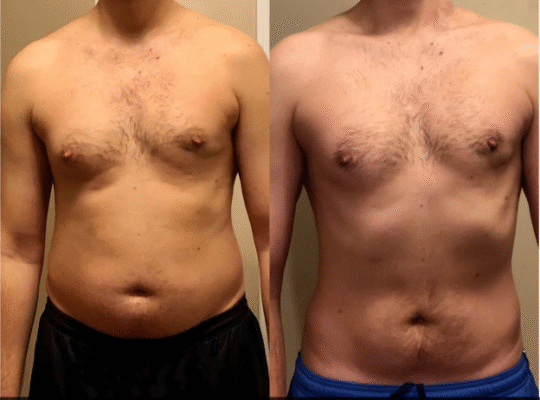Many people want to lose weight, but the way we approach the process makes a big difference. Quick fixes, extreme diets, and harsh routines often do more harm than good, leaving people feeling frustrated and defeated. Healthy weight loss, on the other hand, is about building habits that support your body and mind in the long run. When weight loss is approached with care, balance, and patience, it becomes not only effective but also sustainable.
Focusing on Nourishment Instead of Restriction
One of the most important shifts to make is thinking about nourishment rather than restriction. Instead of focusing only on what not to eat, try paying attention to what you can add to your meals to make them more supportive of your health. Colorful vegetables, fresh fruits, lean proteins, whole grains, and healthy fats give your body the nutrients it needs while also keeping you satisfied. When meals feel abundant rather than deprived, it becomes easier to stick with healthy eating patterns.
Many people find that simply swapping processed snacks for whole food alternatives makes a big difference. Choosing an apple with nut butter instead of chips or a handful of seeds instead of candy brings more energy and less guilt. When your body feels fueled, cravings for less nutritious foods often naturally decrease.
Building a Positive Relationship with Food
Healthy weight loss is not just about what you eat but how you relate to food. Developing a positive mindset helps you make choices without guilt or shame. Food should not feel like an enemy. Instead, it is a way to care for yourself. Paying attention to hunger and fullness signals, eating slowly, and savoring flavors can help you enjoy meals while staying in tune with your body.
Sometimes people eat for reasons other than hunger, such as stress, boredom, or emotions. Recognizing these patterns without judgment is the first step in creating change. Once you notice emotional eating, you can look for other ways to handle feelings, like going for a walk, journaling, or calling a friend.
The Role of Physical Activity
Exercise is a vital part of healthy weight loss, but it does not mean you need to spend endless hours at the gym. The key is finding movement you genuinely enjoy. Whether it is dancing, swimming, hiking, yoga, or brisk walking, joyful activities make it easier to stay consistent. Regular movement helps burn calories, improves muscle tone, supports mental health, and increases energy levels.
In addition to structured workouts, daily movement matters just as much. Taking the stairs, walking short distances, or stretching during breaks can all contribute to energy balance. These small habits may not feel dramatic, but over time, they build up and support lasting results.
The Importance of Rest and Sleep
Sleep often goes overlooked in weight loss conversations, yet it plays a critical role. When you do not get enough rest, your body produces more stress hormones, which can trigger cravings and increase appetite. Lack of sleep also makes it harder to stay motivated to exercise or cook healthy meals.
Prioritizing seven to nine hours of quality sleep each night supports balanced hormones, better mood, and improved energy. A bedtime routine that includes calming activities, such as reading or gentle stretching, helps prepare your body for rest. With adequate sleep, it becomes easier to make healthy decisions throughout the day.
Staying Hydrated
Water is one of the simplest yet most powerful tools for healthy weight loss. Often, feelings of hunger are actually signs of thirst. Drinking water before meals can help regulate appetite, while staying hydrated throughout the day improves energy, digestion, and overall well-being. Adding slices of fruit or herbs like mint can make water more appealing if plain water feels uninteresting.
Setting Realistic Goals
Healthy weight loss is gradual. Instead of aiming for dramatic changes in a short period, focus on small, steady progress. Even a modest weight reduction can improve health and create motivation to keep going. Setting goals that are realistic and kind to your body prevents the discouragement that often comes with chasing extreme targets.
Remember that the scale is not the only measure of success. Energy levels, mood, sleep quality, and confidence are equally important indicators of progress. By paying attention to how you feel rather than only how you look, you will find the journey more rewarding.
Mindset and Patience
Perhaps the most powerful ingredient in healthy weight loss is patience. Sustainable changes take time, and progress may feel slow at first. Instead of expecting perfection, allow yourself room for flexibility. If you have a day when you eat more than planned, do not view it as failure. It is simply part of the process. Returning to your healthy habits the next day is what truly matters.
Encouraging self-talk also makes a big difference. Harsh criticism often leads to discouragement, while gentle encouragement helps you stay consistent. Treat yourself the way you would treat a loved one, with compassion and patience.
Support Systems
Having support can make the journey easier and more enjoyable. Friends, family, or community groups can provide accountability and encouragement. Sharing your goals with someone you trust may help you stay motivated during tough times. Some people also benefit from professional support, such as a registered dietitian or a health coach, who can provide guidance tailored to individual needs.
Celebrating Non-Scale Victories
Every step toward healthier living deserves recognition. Maybe you notice you have more energy during the day, your clothes fit more comfortably, or you are able to walk longer without feeling tired. These victories are signs that your body is responding positively to the changes you are making. Celebrating these small wins keeps you motivated and helps you see progress even when the scale moves slowly.
Creating Long-Term Habits
The ultimate goal of healthy weight loss is not just reaching a certain number but building habits that last a lifetime. Fad diets often promise quick results, but once they end, weight tends to return. True success comes from creating a balanced lifestyle where nutritious food, enjoyable movement, rest, and self-care become natural parts of daily life.
Healthy weight management is less about strict rules and more about balance. Allowing space for flexibility makes the journey sustainable. You can enjoy your favorite foods in moderation without derailing your progress. What matters most is consistency over time.






